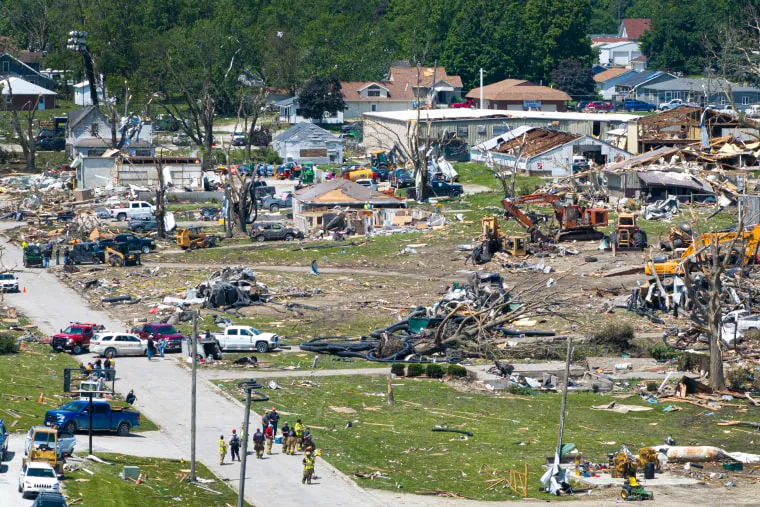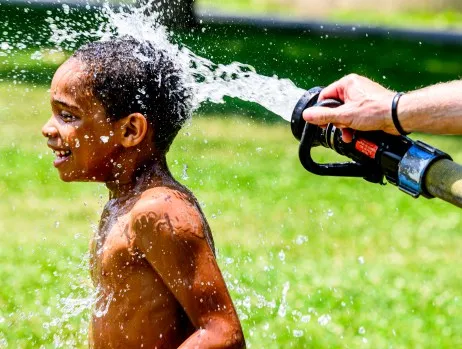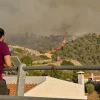The torrential rains that battered parts of south-eastern Pennsylvania over the weekend have left a trail of devastation in their wake. At least five people have been killed, with two children still missing after their car was swept away by floodwaters.
According to Chief Tim Brewer of the Upper Makefield fire department, the family of the two children, a nine-month-old boy and his two-year-old sister, were on their way to a barbecue on Saturday when disaster struck. The mother was later found dead, while the father and young sibling managed to escape miraculously.
Four other people lost their lives in the floods that hit the Bucks county area, authorities have said, although none of the victims have been named. The number of fatalities has risen in recent days, with officials initially reporting at least three deaths. “Mass casualty incidents like these… are unbelievably devastating to all the families involved,” Brewer said, adding, “We are all grieving.”
The south-eastern Pennsylvania floods are just the latest in a series of intense rain and flooding events to hit the US, as the global climate emergency worsens. Last week, Montepelier in Vermont was inundated with almost two months’ worth of rain in just a few hours, while parts of New York’s Hudson Valley were also affected, resulting in the death of a 35-year-old woman.
Over the past month, the north-east has received between 200% to 300% of its average monthly rainfall, leading to increased flash flooding risks. The rains that hit Pennsylvania on Saturday progressed to the New York region on Sunday, prompting Governor Kathy Hochul to advise residents to avoid unnecessary travel.

“This rainfall is much more dangerous because the ground is already saturated,” she said. “A flash flood doesn’t give you warning. It comes literally in a flash. And in those moments, your car can go from a place of safety to a place of death.”
Climate scientists like Michael Mann, a professor at the University of Pennsylvania, are pointing to the connection between climate change and the severity of these flooding events. “Atmospheric changes due to a warming climate are supercharging natural weather events,” he said.
“Sure, weather is weather,” Mann added. “It’s going to happen – rainfall, flooding events are going to happen. What climate change is doing is it’s supercharging them, so when you get one of those weather systems that’s producing large amounts of rainfall, you get more rainfall.”
As the US grapples with the aftermath of these devastating storms, the nation is also dealing with a sweltering heatwave affecting over 100 million Americans. On Sunday, temperatures in Death Valley reached 128F (53.3C), just two degrees short of the record temperature ever recorded on Earth.

